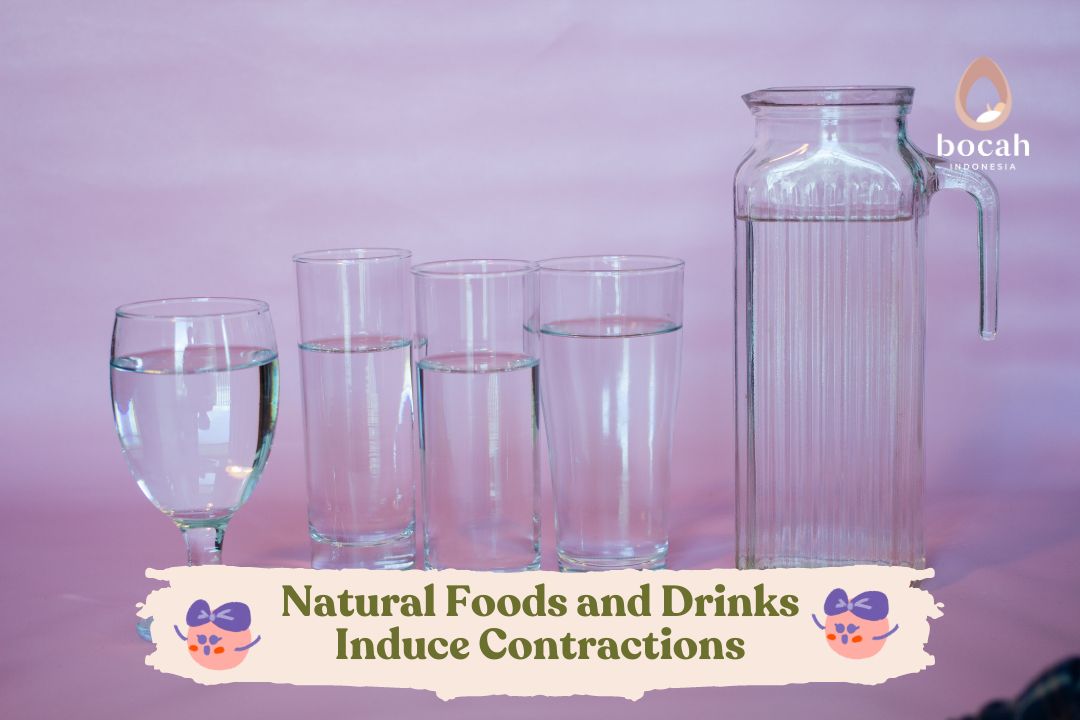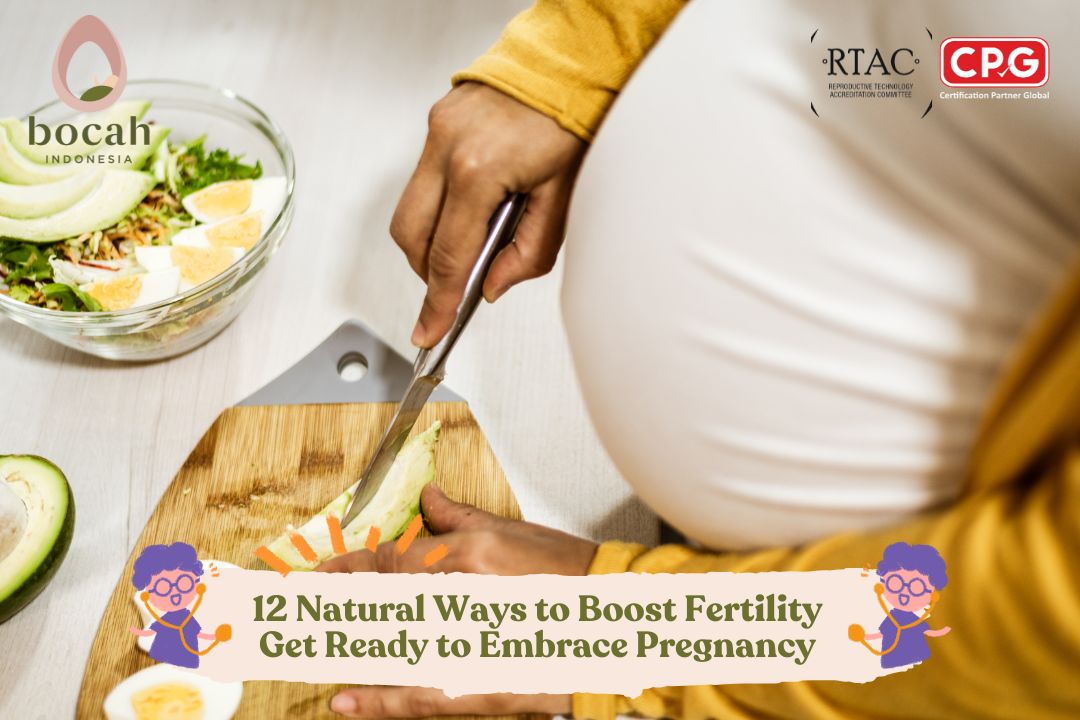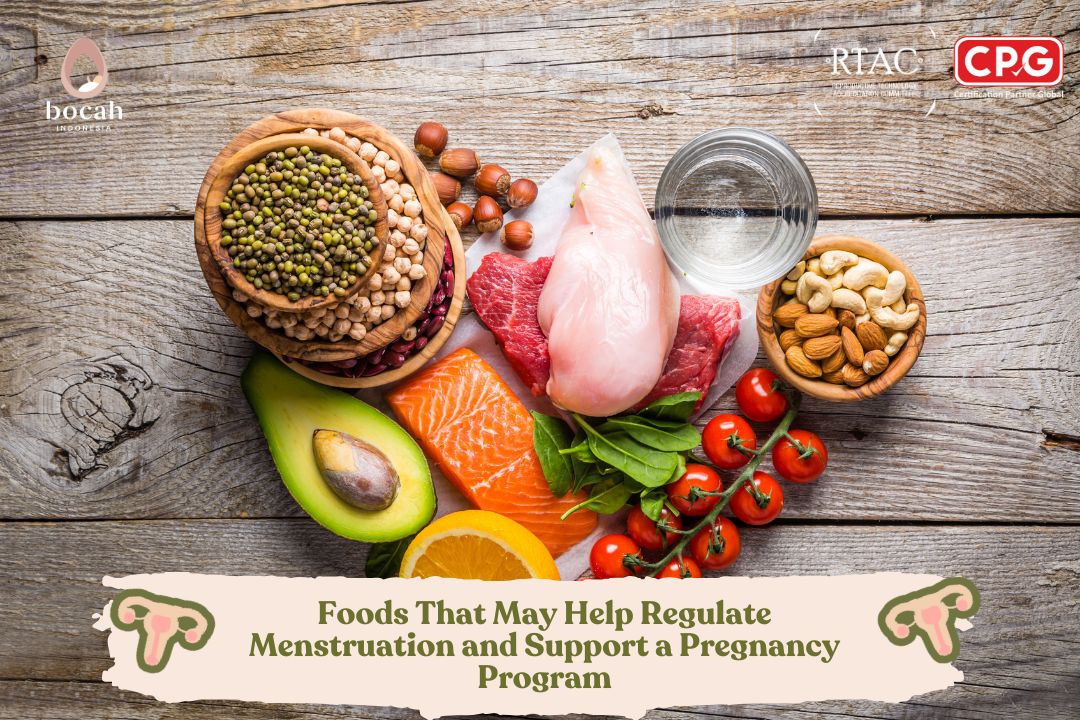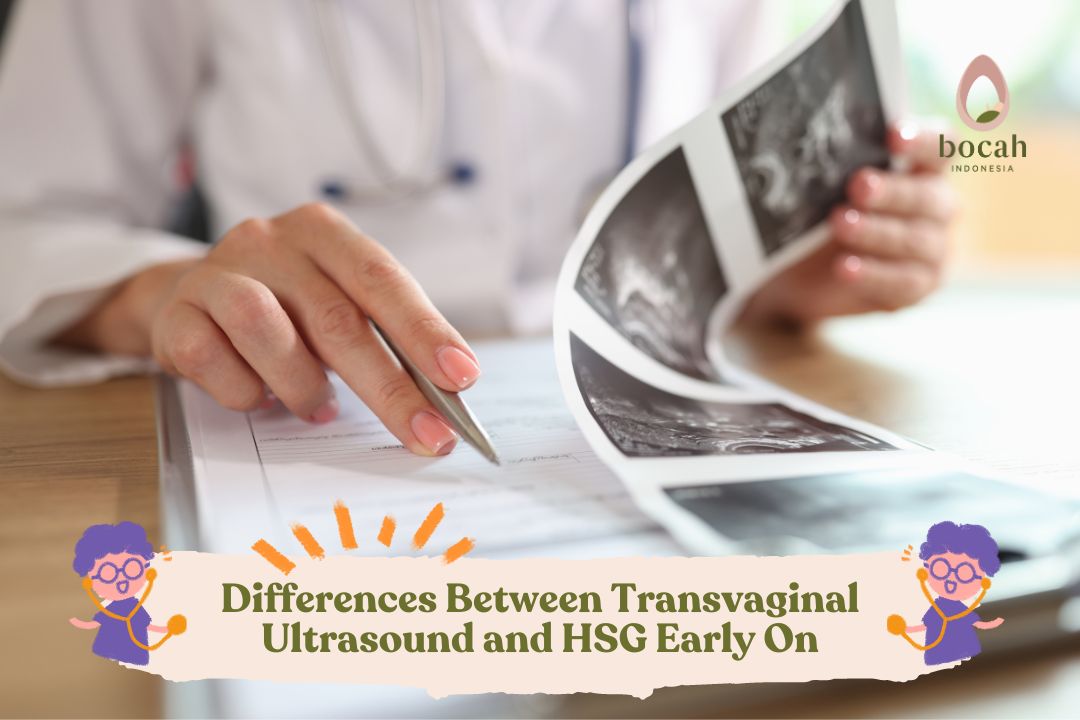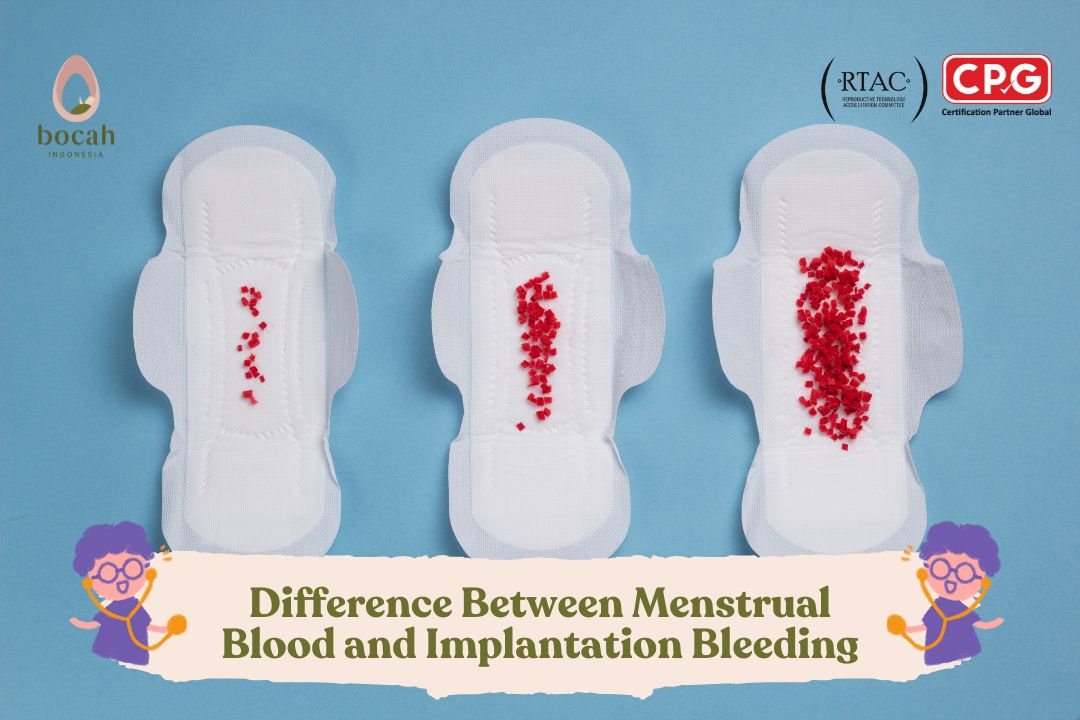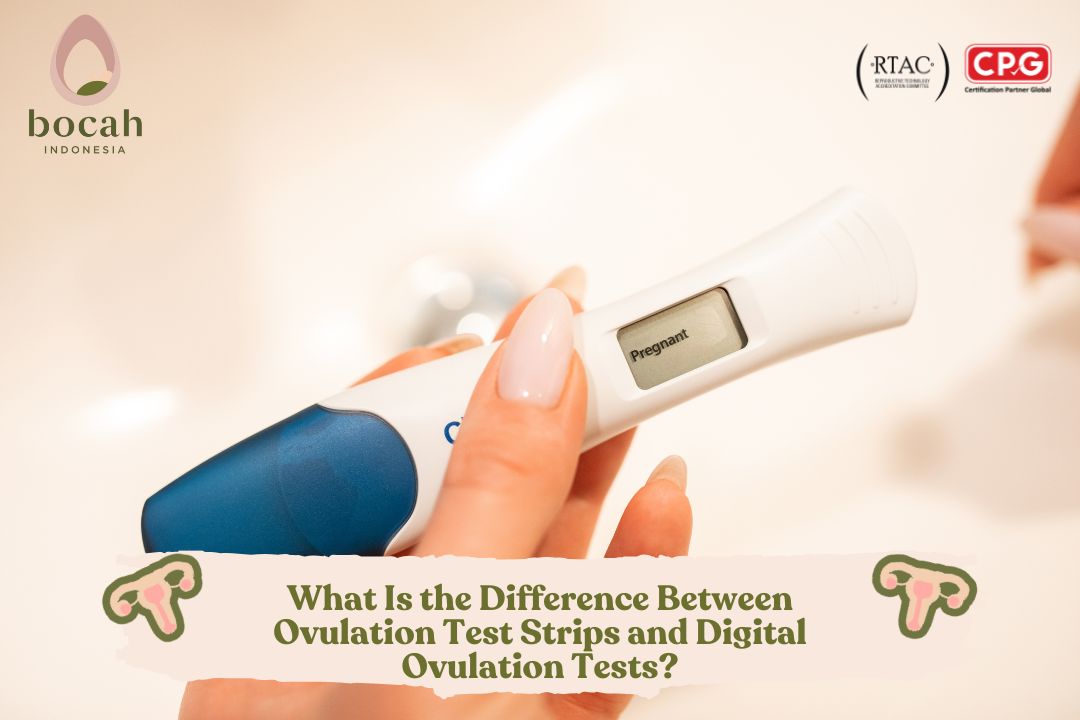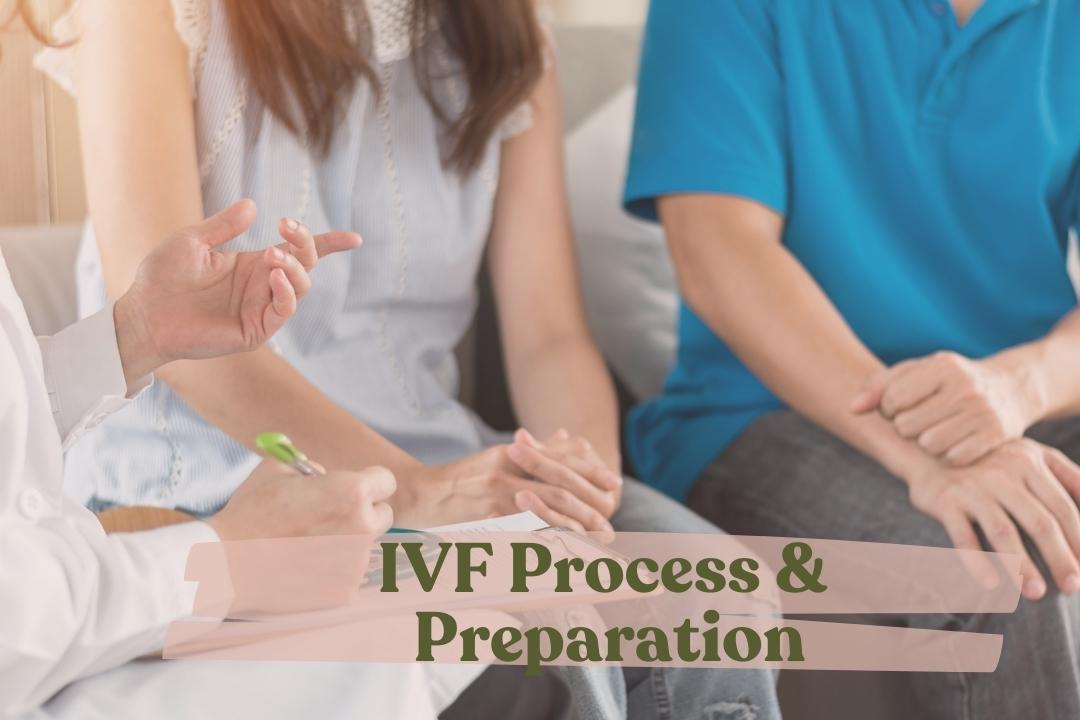Between Natural Process or Insemination
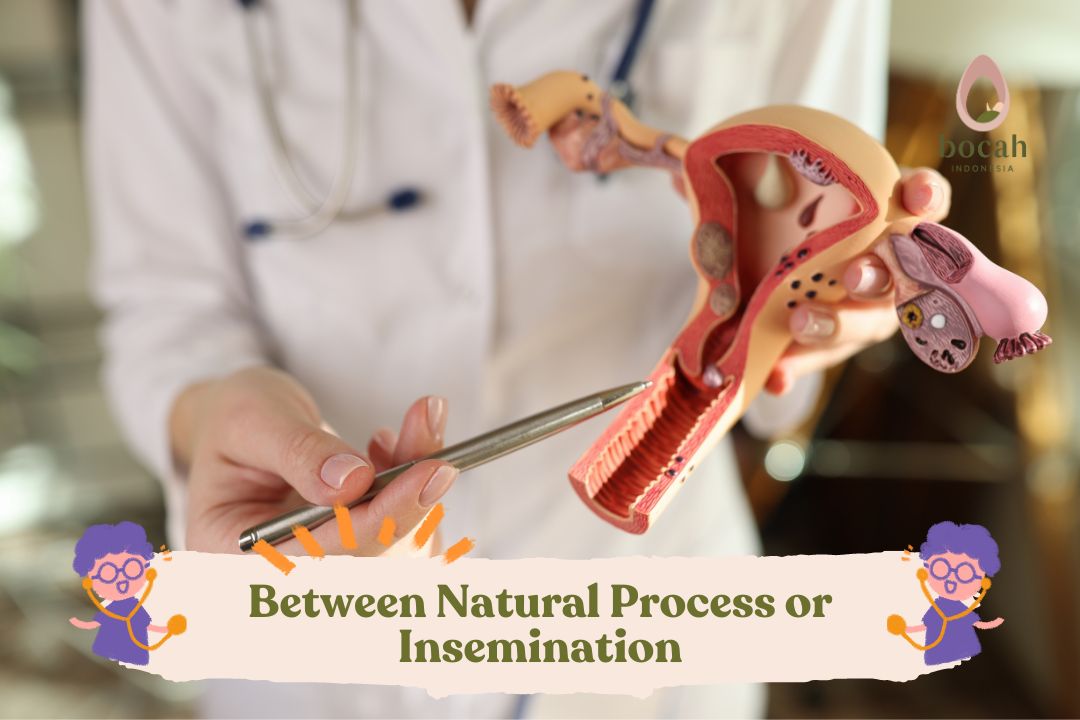
For Moms and Dads who are new to planning a pregnancy, it’s important to know essential information about the conception process itself, especially for those who have been eagerly awaiting the arrival of a child but have not yet achieved pregnancy.
In the case of couples who have been married for 1 year or more, and have been having unprotected sexual intercourse without success in achieving pregnancy, this indicates that there might be fertility issues or infertility.
There are four types of pregnancy programs to consider:
- Natural pregnancy program
- Timed intercourse
- Artificial insemination (IUI)
- In vitro fertilization (IVF) Among these four pregnancy programs, parents can choose the one that suits their fertility condition as a couple.
Of course, this decision should be made after undergoing fertility evaluations and identifying the underlying causes. However, many couples might still be confused, such as choosing between a natural pregnancy program or artificial insemination. Here’s an explanation about both options.
Natural Pregnancy Program
The natural pregnancy program is a conception process that occurs naturally without the assistance of medical drugs. Conception takes place when the father’s sperm meets the mother’s egg and develops into an embryo and later a fetus inside the uterus. This pregnancy program can occur when couples have sexual intercourse without the use of contraceptives. There are several factors to consider if you want to increase the chances of a successful pregnancy through this natural conception method, such as:
Tanya Mincah tentang Promil?
- Knowing the timing of the mother’s fertile period
- Tracking the length of the menstrual cycle
- Increasing the frequency of intimate relations, around 2-3 times a week
- Discontinuing the use of contraceptive methods
Benefits of the natural pregnancy program
One of the hopes for couples striving to have a child is through the natural pregnancy program.
Each pregnancy program has its own advantages and disadvantages. The main advantage of the natural conception method is its cost-effectiveness compared to assisted reproductive technology (ART) programs. This method also doesn’t require complex procedures. As long as couples engage in intercourse during the fertile window, the chances of achieving pregnancy are higher.
Insemination Pregnancy Program
Intrauterine insemination (IUI), also known as artificial insemination, is a type of assisted reproductive technology (ART) pregnancy program. Insemination involves the technique of placing previously collected and carefully selected sperm from the father into the mother’s uterus. Natural fertilization will occur if the sperm successfully reaches the egg. Do I need to undergo artificial insemination? Don’t worry, there are several indications why you might consider the insemination pregnancy program, such as:
- Mothers who have ovulation disorders like polycystic ovarian syndrome (PCOS)
- Mothers with mild endometriosis
- Either parent with medical conditions like hepatitis or HIV
- Either parent experiencing unexplained infertility
- Fathers with fertility disorders such as abnormal sperm, erectile dysfunction, ejaculation disorders, or other conditions.
Stages of the Insemination Pregnancy Program
If Moms and Dads are considering undergoing the insemination pregnancy program, there are several stages to go through.
1. Egg Stimulation
Moms and Dads will be required to visit the doctor on the second or third day of menstruation for an ultrasound (USG) to assess the thickness of the uterine lining and the number of follicles on both ovaries. Subsequently, egg stimulation will commence with the administration of egg-stimulating medications.
2. Egg Monitoring
Moms will undergo a series of doctor’s appointments to monitor the development of follicles using ultrasonography (USG) equipment.
3. Trigger Shot Administration
Once the follicles have reached the appropriate size, Moms will be given a medication to trigger egg maturation. After waiting approximately 30-40 hours, the process can proceed to insemination.
4. Sperm Retrieval and Preparation for Insemination
Dads will undergo sperm retrieval on the same day as the insemination procedure. It’s important to note that Dads should abstain from ejaculation for 3-5 days prior. Subsequently, the sperm will be washed using a specialized medium before being inseminated into Moms’ uterus.
Benefits of the Insemination Pregnancy Program
If Moms and Dads are considering the plan to undergo the insemination pregnancy program, there are several advantages to be aware of. Insemination pregnancy (promil inseminasi) employs a simpler technique compared to other assisted reproductive technology (ART) methods, as it involves directly introducing sperm into Moms’ uterus. Furthermore, the cost of insemination pregnancy is more affordable compared to other types of ART pregnancy programs. Fertilization in insemination takes place within Moms’ uterus.
So, there you have it, Moms and Dads, an explanation regarding the natural pregnancy program and insemination. Both methods have their own pros and cons. For Dads and Moms with specific indications related to fertility conditions, the natural pregnancy program might not be recommended. Nevertheless, it’s important for Dads and Moms to undergo fertility evaluations first, after which the doctor will provide suitable advice regarding the pregnancy program. Let’s check your fertility at Bocah Indonesia!
Source:
- Alahbadia, G.N. (2017). Intrauterine Insemination: Fundamentals Revisited. J Obstet Gynaecol India. 2017 Dec; 67(6): 385–392.
- Ayeleke, R.O., et al. (2020). Intra‐uterine insemination for unexplained subfertility. Cochrane Database Syst Rev. 2020; 2020(3): CD001838.
- The ESHRE Capri Workshop Group. (2009). Intrauterine insemination. Human Reproduction Update, Volume 15, Issue 3, May-June 2009, Pages 265–277.



